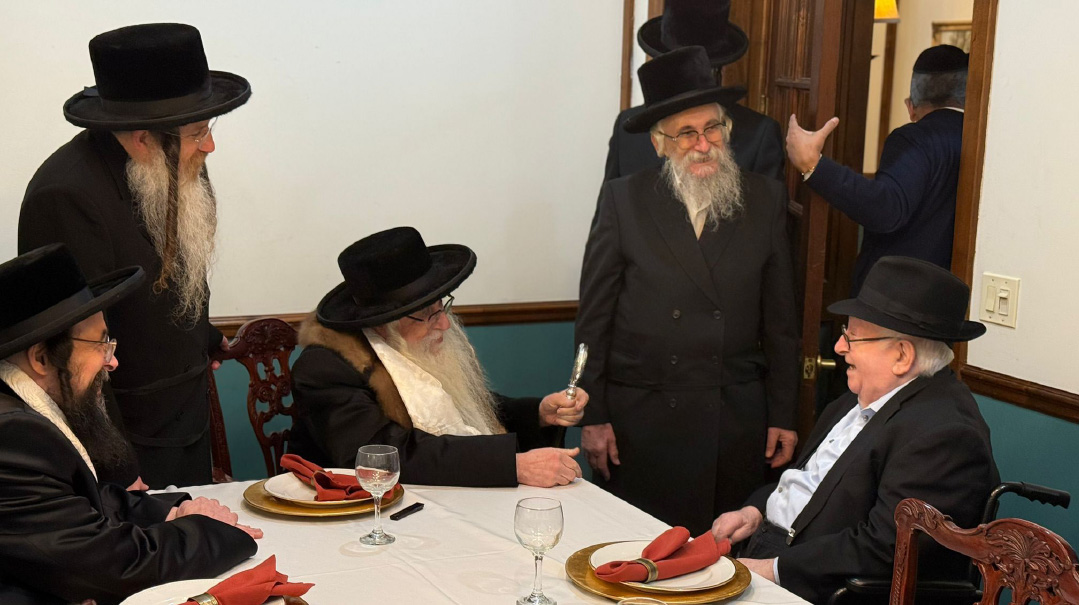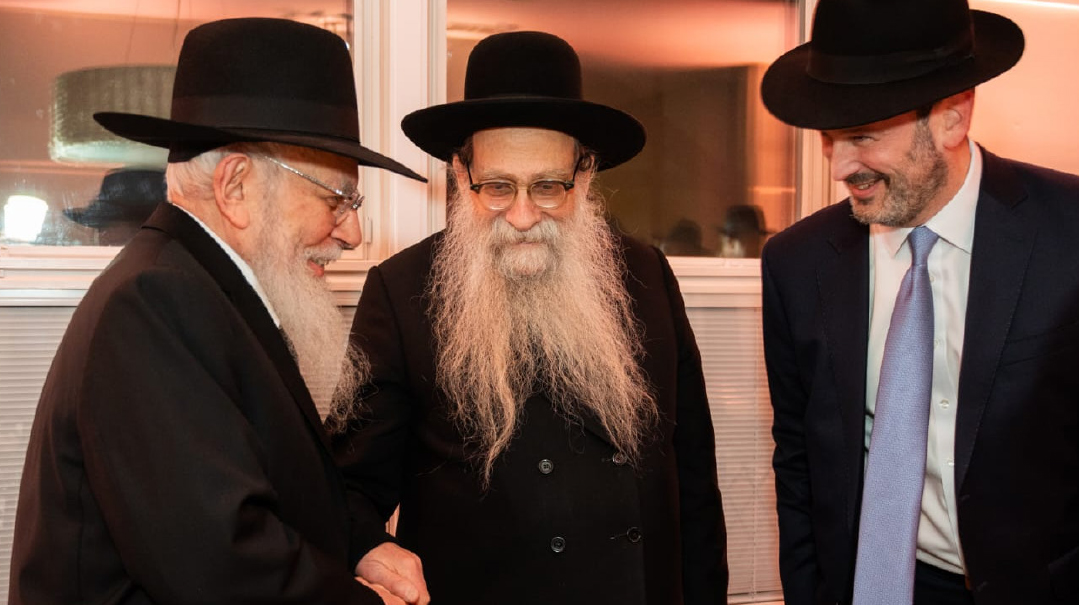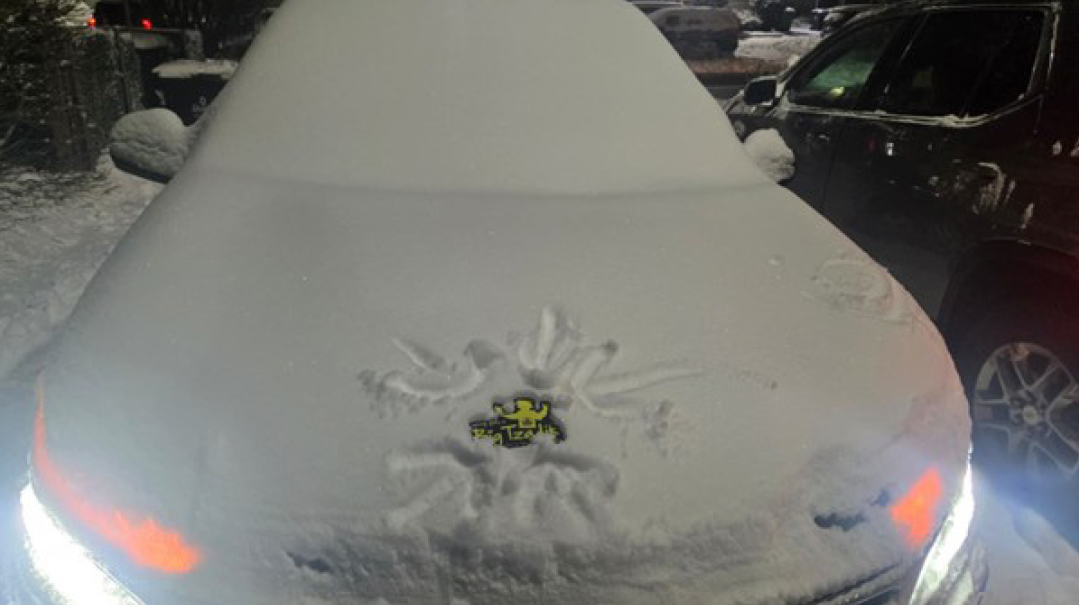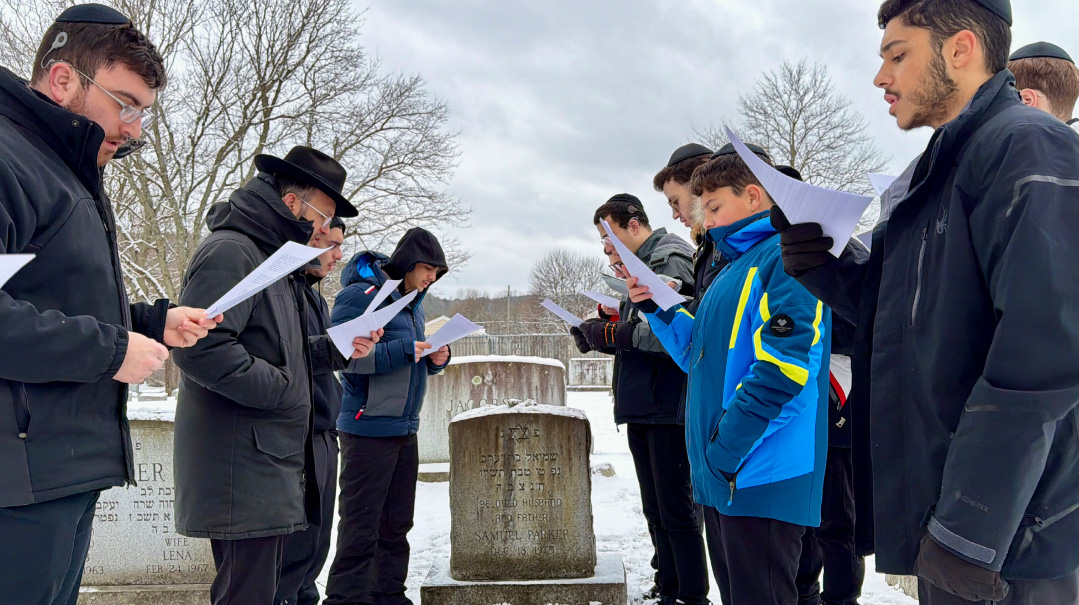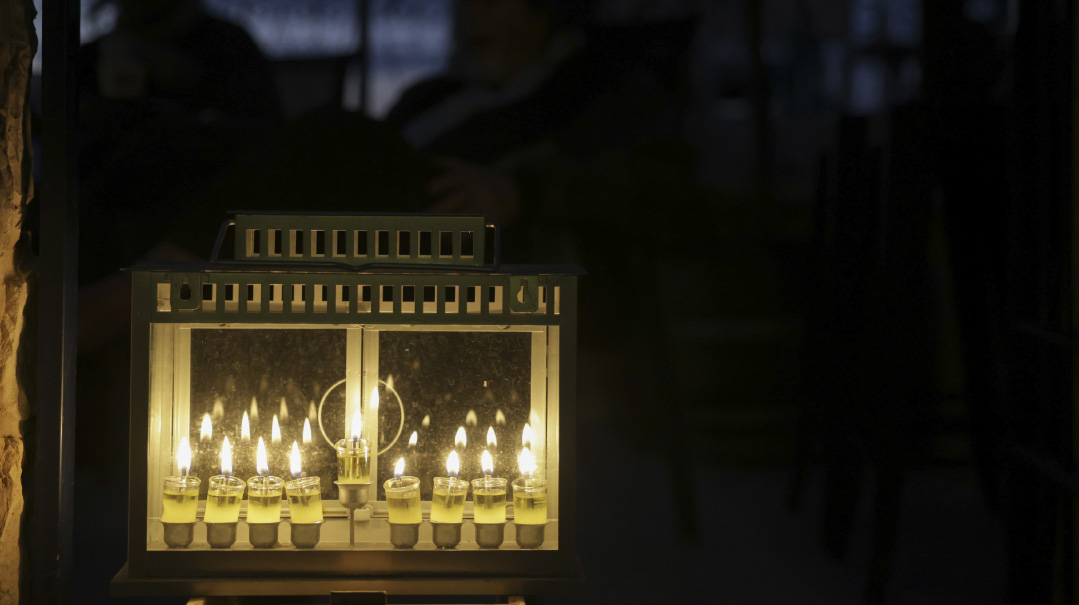From the Depths

“I reached out to her as a rav, but by the time I hung up, I was a talmid of her emunah”

O
nly a dreamer with nerves of steel would attempt to break down the barriers that exist between chareidim and those living out on the kibbutzim. Rabbi Shlomo Raanan and his Ayelet Hashachar program fit the bill, setting up chareidi families to live on the kibbutzim of unaffiliated — and mostly uninterested — Jews, in the hopes of showing them that we are truly one nation with one heart.
But it was only after October 7 that he found himself on Kibbutz Nir Oz, visiting the homes of those affected by the massacre. It was there that he met Yelena (Lena) Troufanov.
On October 7, Lena and her husband were at their home on Kibbutz Nir Oz. Her son Alexander (Sasha), was visiting for the chag, as was Sapir, the young woman he was dating. By the end of that day, Lena’s husband had been murdered and her house burned to the ground. Lena, Sasha, Sapir, and Lena’s mother, Irina — who lived in a separate home on the kibbutz — had been taken into Gaza.
Lena, Irina, and Sapir were returned to Israel in the hostage deal of November 2023 but Sasha remained in captivity.
Her son was a hostage of Islamic Jihad terrorists, her home was gone, her husband cut down… What did Yelena Troufanov have to live for? And if she was forced to trudge through this life, what exactly would that life be like?
“I reached out to her as a rav,” Rabbi Raanan related, “but by the time I hung up, I was a talmid of her emunah. Every conversation I’ve had with her since — and there have been many — has left me in awe of the fierce emunah peshutah this slight Russian woman possesses.”
Rabbi Raanan, as touched by the mother’s plight as everyone else, called her regularly with different ideas. Maybe a call to a foreign minister could free Sasha, or perhaps she should reach out to those in Russia or maybe, maybe…
“Rabbi,” she would cut him off. “The only hishtadlut I need to do is tefillah. All else is irrelevant. Rak b’tefillah will my son come home.”
Because something changed for Lena down in the tunnels in Gaza. “At long last, I understood the words of Dovid Hamelech: Min hameitzar karasi Kah — from the depths I call out to You. I called out to Him and He heard me.”
Rabbi Raanan said he finally understood the concept of shibud Mitzrayim. “There must be a certain light of emunah that can only be seen when you are in total darkness, a light that makes you call out,” he mused. “After all, vanitzak! Am Yisrael called out and Hashem raised them up through the depths of despair.”
And since her time in the gehinnom of Gaza, Lena has not stopped calling out.
One would think her days would be a continuous stream of mourning; instead they were filled with her newly found kedushah of Shabbos, the warmth of Sefer Tehillim — Yelena Troufanov finishes Sefer Tehillim every day — and the cautious preparations of one learning about kashrus.
“We can’t speak on Fridays, Kevod Harav, there is simply too much to do for Shabbos,” she would tell Rabbi Raanan.
She also explained that she had to prepare for Shabbos the way she would prepare for a visit from a king.
Her emunah, her belief, was ignited somewhere deep in captivity, and burst into flame as she moved Heaven and Earth — but mostly Heaven — for her son Sasha’s release.
“She understood that Shabbos is true freedom,” says Rabbi Raanan, “and she reveled in it. And fittingly, her son was released into freedom on Shabbos.”
Lena Troufanov’s actions on this past Erev Shabbos were extraordinary. She arrived on Friday at Re’im, the site where she would be reunited with her son, near the Gaza border, a day early to avoid traveling on Shabbos. She then approached the media gathered there and begged them not to release any press releases or photos on Shabbos in relation to her or her son.
“Please, out of respect for me,” she pleaded.
And the media, whether their views lay with the left or the right, acquiesced. Because the purity of Lena’s faith touched something deep in them all, as it did in all of us.
On Friday, after receiving the news that Sasha would be returning, Lena sent out a message to the women of Am Yisrael: “I ask you all to light Shabbos candles with joy,” she said in footage posted to social media. “Make a wish that all our hostages come home soon, and that there will be peace, quiet and calm in the land of Israel for the nation of Israel.”
Thousands of homes had Shabbos candles last week, some for the first time.
Lena’s mother Irina also became shomer Shabbos over the past year, walking from her hotel on Shabbos instead of driving to witness the release. Sapir has come close to Yiddishkeit as well, and Sasha himself donned tefillin for the first time the day after his release, assisted by Russia’s chief rabbi, Rabbi Berel Lazar.
All of this inspiration, all these people ignited, can be traced back to Lena Troufanov’s fierce faith, her simple emunah that only Hashem runs the world, that no basar va’dam can take or give anything to her unless He ordains it to be so.
And she has also motivated Rabbi Raanan to build a real shul on Kibbutz Nir Oz. There is, finally, at long last, a need.
Nothing Is Happenstance
Half a year ago, Rabbi Raanan was printing a book in memory of his father, and in a gesture of utmost respect and awe, he reached out to Lena to write the sefer’s foreword.
The mother, now a widow, once a hostage, her son snatched away by evil men, wrote:
Before all this occurred, I was very far from religion. But as a hostage, I saw many things that brought me close to emunah. I began to understand that there is Something far greater than me directing things, that nothing is happenstance.
When I returned, I began to keep Shabbos and kashrus, but I didn’t know how or where to learn more. What was allowed? What was forbidden?
Everything was outlined so clearly in Rabbi Raanan’s sefer.
I wish anyone who will be learning this sefer a good life, that he or she find what they are looking for, and that their tefillos come to fruition.
Thank you to Rabbi Raanan who is publishing this sefer in the zechus that my son and the other hostages should be returned soon.
My path began in a place of hardship and pain, but while traversing it I found comfort and strength.
Wishing everyone a year of sweetness.
—Yelena Leah Troufanov
(Originally featured in Mishpacha, Issue 1050)
Oops! We could not locate your form.

